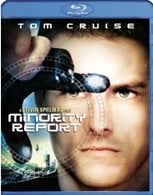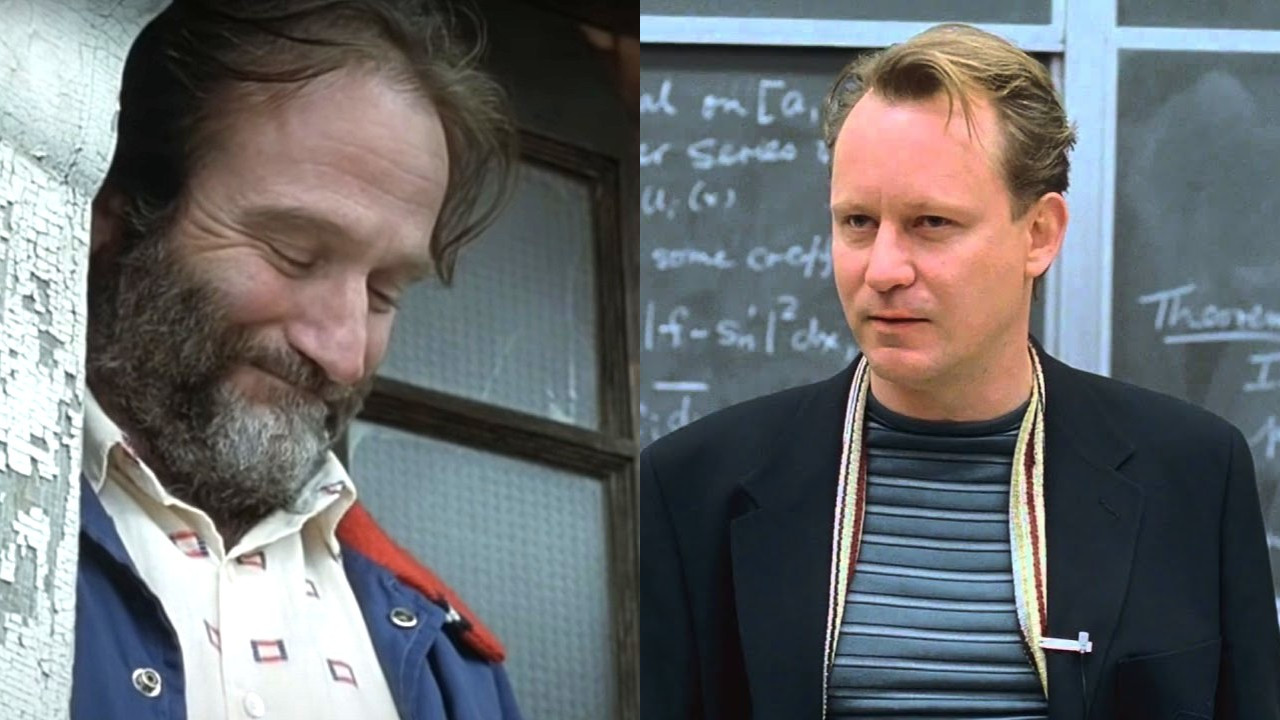Hollywood has got a serious hard-on for Philip K. Dick. Not that Dick didn't produce some amazing, trippy works in his time, but Tinseltown's infatuation with adapting his stories is surpassed only by its ability to screw them up. Let's just run down the IMDb list real quick, shall we? Since 1982 we've had Blade Runner, Total Recall, Screamers, Impostor, Minority Report, Paycheck, A Scanner Darkly, and Next, with The Adjustment Bureau and a rumored Total Recall remake on the way. The best of the bunch is clearly Blade Runner, and Total Recall, while not a very good movie, is sort of genius in its cheesy insanity. And then there's Minority Report, which, eight years after release, is actually still pretty damn good. Shame about that ending, though. It's the year 2054, and murder in the District of Columbia has been all but eliminated thanks to the relatively new Precrime Division. Three genetically engineered telepaths float in a wading pool inside the Precrime headquarters, combing the psychic landscape for impending homicides (and, presumably, peeing in the pool a lot). Once they detect an impending "redball," the jumbled, chaotic flashes of their premonition are displayed for Precrime officers to examine and decipher, hopefully in time for them to suit up and go stop the killing before it happens. Precrime's golden boy is Chief John Anderton (Tom Cruise), a dedicated officer haunted by the disappearance of his young son several years back. When the latest prediction shows Anderton himself gunning down an unidentified man, he kidnaps the most powerful of the pre-cogs (Samantha Morton) and goes on the run to prove his innocence. But along the way he must discover whether the future is immutable, and uncover an old conspiracy that could topple the very notion of Precrime to the ground.
What is it about the mystery, the detective story, that lends itself so well to science-fiction settings? Blade Runner is about many things, but all of those things are wrapped around a futuristic neo-noir detective tale. Deckard may be called a Blade Runner rather than a private dick, but it's all much the same. Both I Robot and Surrogates fumbled in many ways, but both were at their strongest when using the trappings of a detective story to explore a unique and interesting future world. Perhaps it's just that humans love to solve a mystery, love to try to outsmart the storyteller, try to guess all the twists and turns before the film finally tips its hand. Perhaps it's because science fiction offers new toys to play with, new technologies and concepts and cultural variations that allow a writer to take well-worn crime clichés and tip them on their head. Minority Report excels in this area, telling a taut, twisty murder mystery that could only be told in this specific world, with this specific set of circumstances. And like all the best mysteries, it explains how everything works right up front, so you have all the pieces you need to figure out what's really going on, if only you're clever and observant enough. To borrow a little snooty writer's parlance, the gun that's fired in act three is shown on the wall in act one.
Another advantage of crime stories is that they often, by their very nature, span a wide spectrum of the society or culture in which they're set. In Minority Report, we see Anderton travel from the towering glass and steel housing of the future to a rundown tenement where an insane doctor will swap your eyes out for a very reasonable rate. Director Steven Spielberg and screenwriters Scott Frank and Jon Cohen are very canny in how they create a richly detailed future world, one that feels both incredibly prescient and just futuristic enough for the span of a half century without going overboard just for spectacle's sake. The automated magnetic freeways that run up the sides of buildings are cool, but the individualized advertising that screams at Anderton everywhere he goes is the element that seems the most inevitable -- and the most queasifying. It's not just the technology that fascinates, either, but the extrapolation of what it would mean for our society if pre-cognitive crimesolving were a reality. It's a fanciful but logical extension of today's information monitoring and profiling, and Minority Report does a solid job of exploring the slippery ethical slope such an invention would inevitably create. It's not all dour prophesying, of course; one of the film's best moments is a chase sequence that shows just how useful the ability to see the future can be when fleeing the authorities.
The cast is also excellent across the board. Cruise plays yet another variation on Cruise, but regardless of your thoughts on his all-too-public personal life in recent years, there's no denying the guy's talent and charisma. Colin Farrell makes a decent nemesis for Cruise as a skeptical investigator determined to find the cracks in Precrime's too-good-to-be-true facade, and Max von Sydow lends considerable weight to the role of Precrime Director Lamar Burgess. Samantha Morton steals the show just a bit once Cruise yanks her from the psychic hot tub, perfectly capturing the terror and fragility of a woman constantly experiencing multiple time-frames and utterly unprepared for the world outside her former safe haven.
The only place Minority Report stumbles is in its ending -- and I'll be vague here in deference to any readers who haven't seen the film yet (you should). Spielberg purportedly yanked a single line from the film's closing epilogue -- one that made for a much grayer ending, one that I think would have been much superior. While some have suggested that the "mega-happy" ending actually lends itself to more sinister, Brazil-like interpretations, I don't think this unofficial take on the events works terribly well, even if true. Did Spielberg really choose this more upbeat endings as a mind game to see whom amongst his audience was really paying attention? It's possible, but he's certainly proven capable in the past of abandoning logic and narrative honesty in order to tack on a more uplifting conclusion -- see War of the Worlds or A.I.. All niggling hypothesizing aside, the ending as it is, not as it was maybe sort of intended to be, is disappointing. It's not enough to cancel out the enjoyable science-fiction thriller that leads up to it, but it could have been better. Spielberg's movies are always a visual feast, and Minority Report is no exception. The Blu-ray picture and audio are excellent, from the stylized, blue-gray look of the world overall to the gripping action set pieces such as Anderton leapfrogging from one mag-lev car to another as they race down the side of a skyscraper.
Props must go to Paramount for breaking the recent trend of bare-bones Blu-ray catalogue releases. Minority Report is a movie rife with background just itching to be further explored by fans, from all the futurism of the production design, to the original story by Philip K. Dick. Thankfully this release includes over an hour of high-def extras delving into just about every nook of the production and mythology you could hope for.
The main attraction is "The Future According to Steven Spielberg," a 40-minute interview where the director covers everything from the project's background to ethical quandaries of the story's themes. You can watch it all in one sitting or chose from a menu of subjects. You can also branch out as you go, as the entire interview has constantly updating links on the right side of the screen that you can click to access related material, from other interviews to concept art. It's always fascinating to listen to Spielberg discussing his chosen field, and while this feature isn't quite as lengthy as an actual director's commentary, it'd have a hard time being any more thorough.
Your Daily Blend of Entertainment News
The next item of interest is "Philip K. Dick, Steven Spielberg and Minority Report," a 15-minute featurette looking at the late author's influence and including interviews with his daughter, biographer, and others.
From there the featurettes branch out to cover nearly every aspect of production, including the near-future technology depicted, the props, and even the rather hilarious way the film uses advertising. There's really not a weak item in the bunch; you may not want to watch all of them, but if you do you'll find plenty of interesting material and not much repetition. If you're a fan of the film, this is definitely worth a purchase.

